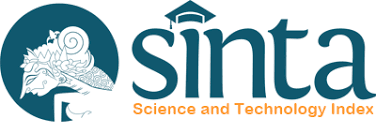Strategi Pengembangan Usaha Lebah Madu Kelompok Tani Mau Sigaro Hutan Kemasyarakatan Desa Gamsungi Kabupaten Halmahera Barat
DOI:
https://doi.org/10.24259/jhm.v12i1.9921Abstract
The purpose of this study was to determine the activity of Mau Sigaro farmer group in Gamsungi village and identified internal and external factors that became the strengths, weakness, opportunities, and threats of the honey bee cultivation business, in order to find a good strategy to develop it using SWOT matrix. The result of SWOT analysis showed the strength point was consisted of professional human resorces, received capital assistance, produced a pure honey, and short marketing channel. The weakness of this farmer group was limited opportunity for all the member to join some workshop related to honey bee cultivation, needed more capital assistance to pay the maintenance expense, the price of the product was cheap, using manual technic, and none market promotion. The opportunities identified as the support from the government to the farmer group and it had gained consumer trust towards the product. The threats was found as weather exchange, it had not used technology to gain information, and it still did not have a permanent marketing partner to distribute the product. Alternative stategy can be used to develope the honey bee business based on SWOT result is Mau Sigaro farmer group needs to gain more relation with the government and marketing partner, increase the number of production and the quality of the product, send the member to join honey bee cultivation workshop, using the newest technology in honey bee cultivation and mass communication to spread the product information, and using an attractive packaging to gain more consumers.
Key words: honey bee cultivation, farmer group, developing strategy, SWOT
References
Dinas Perkebunan Provinsi Jawa Timur. 2012. Budidaya Lebah Apis Mellifera di Sekitar Kawasan Perkebunan. Diakses pada tanggal 11 Maret 2020.
Farida, I. 2000. Evaluasi Perkembangan Usaha Lebah Madu Apis mellifera (Studi Kasus pada Perusahaan Industri Kecil Madu Odeng Cibubur Jakarta). Skripsi Jurusan Sosial Ekonomi Industri Peternakan Fakultas Peternakan IPB. Diakses pada tanggal 12 Maret 2020.
Kementerian Kehutanan. 2016. Peraturan Menteri Lingkungan Hidup dan Kehutanan Nomor:P.83/Menlhk/Setjen/Kum.I/10/2016 tentang Perhutanan Sosial.
Kotler dan Keller. 2007. Manajemen Pemasaran Edisi 12, Jilid 1. Jakarta: PT.Indeks.
Kotler., Philip., and Amstrong. 2011. 10thEdition “Marketing an Introduction” Indonesia: Perason
Molan P C. 1999. The role of honey in the management of wounds. Journal of Wound Care. 8: 423-426.
Mulyono., Susdiyanti, T., dan Supriono, B. 2015. Kajian Ketersediaan Pakan lebah Madu Lokal. Jurnal Nusa Sylva Fakultas Kehutanan Universitas Nusa Bangsa.
Paul, J.L., and J. C. Olson. 2000. Consumer Behavior: Perilaku Konsumen dan Strategi Pemasaran. Terjemahan. Jakarta: Erlangga.
Sanjaya, R., Wulandari, C., dan Herwanti, S. 2017. Evaluasi Pengelolaan Hutan Kemasyarakatan (HKm) pada Gabungan Kelompok Tani Rukun Lestari Sejahtera di Desa Sindang Pagar Kecamatan Sumberjaya Kabupaten Lampung Barat. Jurnal Sylva Lestari Vol.5 No.2, April 2017: 30-42.
Setiawan, A., Sulaiman R., dan Arlita T. 2016. Strategi Pengembangan Usaha Lebah Madu Kelompok Tani Setia Jaya di Desa Rambah Jaya Kecamatan Bangun Purba Kabupaten Rokan Hulu. Jom Faperta Vol. 3 No.1 Februari 2016.
Subagio, K.M.P., Dzulkirom, M., dan Hidayat, R.R. 2017. Analisis Pengelolaan Modal Kerja dalam Upaya Meningkatkan Likuiditas dan Profitabilitas (Studi Kasus PT. Gudang Garam Tbk Periode 2014-2016). Jurnal Administrasi Bisnis (JAB) Vol. 50 No. 1 Oktober 2017.
Sumoprastowo, R.M dan Suprapto, R.A. 1993. Beternak Lebah Madu Modern. Jakarta: PT. Bharata Karya Aksara.
Swastha, B. dan Irawan. 2005. Manajemen Pemasaran Modern. Yogyakarta: Liberty.
Tjiptono, F. 2002. Strategi Pemasaran. Yogyakarta: Penerbit Andi.
Yunita, Pordamantra., dan Berkat, A.P. 2019. Strategi Pengembangan Budidaya Lebah Madudi Kelurahan Kalampangan Kecamatan Sabangau Kota Palangka Raya. Jurnal Socio Ekonomis Agricultural Vol. 14 No. 1, Februari 2019: 62-71












